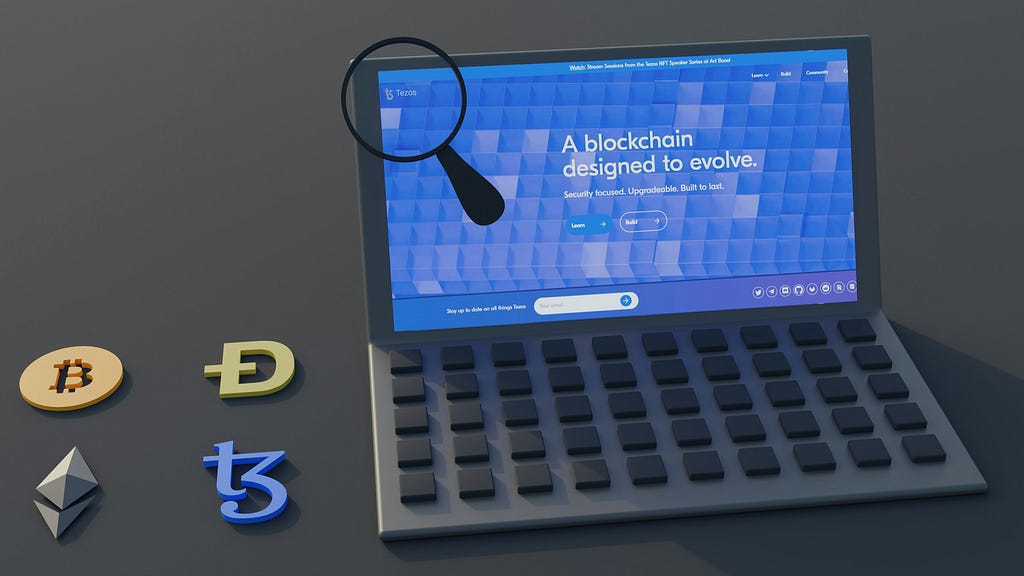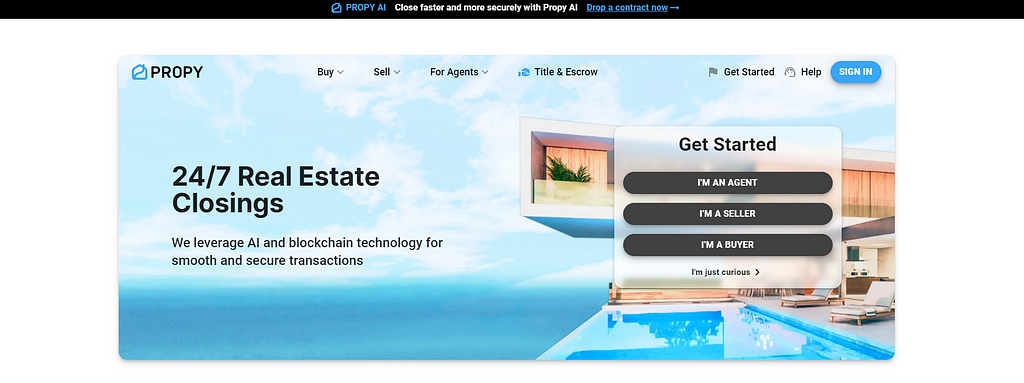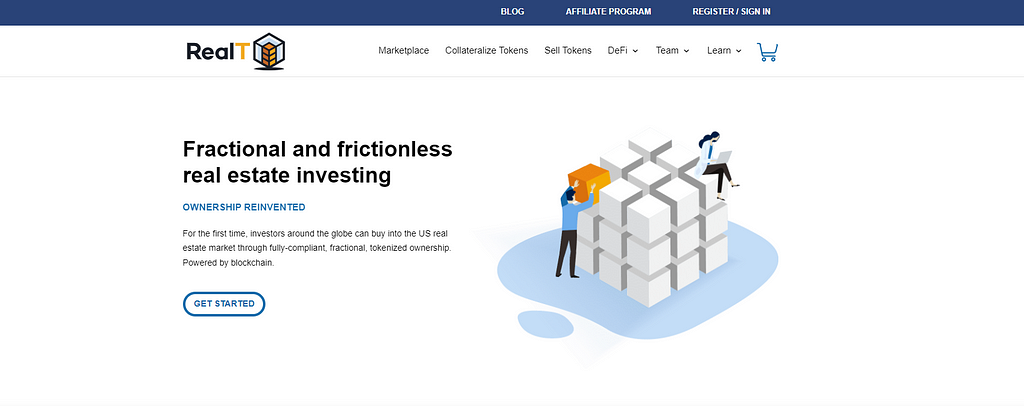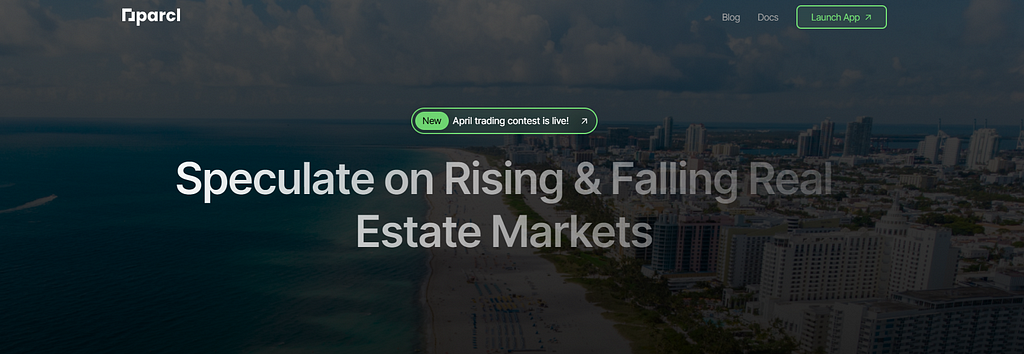Tokenization: Real Estate Future?
 Photo by Shubham Dhage on Unsplash
Photo by Shubham Dhage on UnsplashThe real estate sector has been a key area for building wealth and making investments, but it has been challenging for small investors and property owners.
We all know that traditionally, real estate investments have been complicated for regular people to access because of the high costs and the difficulty of selling physical properties quickly. A new concept called tokenization will change how we view real estate investments.
The Tokenization of ThingsThe tokenization of things refers to the innovative practice of converting physical assets or objects into digital tokens recorded on a blockchain or similar decentralized system.
This transformative process holds immense potential for revolutionizing industries like finance, real estate, and supply chain management by enhancing operational efficiency, transparency, and accessibility.
Tokenizing streamlines trading, tracking, and verifying ownership by digitally representing tangible items.
This, in turn, paves the way for new business models and value exchange mechanisms in today's increasingly digitized world.
Tokenization & BlackRockBlackRock is a global investment firm known for its innovative asset management solutions.
The firm is looking ahead; tokenization of financial assets could revolutionize ownership and settlement processes, allowing for instant transactions and customizable investment strategies.
Real Estate TokenizationIt involves converting the ownership of a physical real estate asset into digital tokens that can be traded on a blockchain-based platform.
These tokens represent a fractional ownership stake in the underlying property, allowing investors to access real estate investments with smaller amounts of capital.
The tokenization of real estate assets is made possible through blockchain technology, which provides a secure, transparent, and decentralized platform for recording and verifying ownership rights.
By tokenizing a real estate property, the asset's ownership can be divided into smaller, more accessible units, allowing small investors to participate in previously unattainable real estate investments.
How Does Real Estate Tokenization Work?Firstly, the property is evaluated and divided into digital tokens. Next, these tokens are issued on a blockchain platform, allowing investors to purchase fractions of the property.
Smart contracts subsequently govern ownership rights and profit distribution among token holders. Next, I will outline the steps:
Asset Identification: The first step is identifying a suitable real estate asset to be tokenized. This could be a commercial property, residential building, or any other type of real estate investment.
Legal and Regulatory Compliance: Before the tokenization process can begin, the property must undergo a thorough legal and regulatory review to ensure compliance with all applicable laws and regulations.
This may involve working with legal representatives to establish the appropriate legal structure and terms of service.
Token Creation: Once the legal and regulatory requirements are met, the real estate asset is divided into digital tokens, representing fractional ownership of the property. These tokens are created and stored on a blockchain network.
Token Distribution: The digital tokens representing real estate asset ownership are then distributed to investors through a primary offering (such as an initial or security token offering) or a secondary market.
Asset Management: After the tokens have been distributed, the real estate asset is managed and maintained, with the token holders receiving their proportionate share of rental income, appreciation, or other benefits associated with the property.
Secondary Market Trading: Tokenholders can buy, sell, or trade their fractional ownership stakes on a secondary market, providing increased liquidity and accessibility to real estate investment.
The Pros of Real Estate TokenizationTokenizing real estate offers, for example, increased liquidity, fractional ownership, lower entry barriers, and broader market access through blockchain technology. Let's read more about each of these advantages.
Fractional Ownership: Real estate tokenization allows dividing a property's ownership into smaller, more accessible units. This enables small investors to access real estate investments previously reserved for high-net-worth individuals or institutional investors.
Increased Liquidity: By representing real estate assets as digital tokens, buying, selling, and trading these investments becomes significantly more efficient and liquid. Investors can easily buy and sell their fractional ownership stakes on a secondary market, providing greater flexibility and accessibility.
Accessibility for Small Investors: Real estate tokenization lowers the barrier to entry for real estate investments, allowing a more comprehensive range of investors, including retail investors, to participate in the real estate market.
This democratization of the real estate sector opens up new investment opportunities for individuals who may have been previously priced out of the market.
Improved Transparency: Blockchain technology supports real estate tokenization, providing a secure and immutable ownership and transaction history. This transparency boosts trust, streamlines real estate transactions, and reduces the risk of fraud.
Property Management: Real estate tokenization can streamline property management by automating specific tasks through smart contracts, such as rent collection. This can lead to cost savings and more efficient management of real estate assets.
Diversification: By allowing investors to hold fractional ownership in multiple real estate properties, real estate tokenization enables greater portfolio diversification, potentially reducing overall investment risk.
Increased Liquidity for Property Owners: Real estate tokenization can provide property owners with an additional avenue to access the value of their assets. By tokenizing a property, owners can unlock its value and potentially access funds for expansion, renovations, or other purposes.
The Cons of Real Estate TokenizationWhile real estate tokenization offers numerous benefits, there are also some potential risks and limitations to consider:
Regulatory Uncertainty: The regulatory landscape surrounding real estate tokenization is still evolving, and there may be varying rules and requirements across different jurisdictions. This regulatory uncertainty can create challenges for both investors and property owners.
Technological Limitations: Real estate tokenization's success heavily depends on the underlying technology, such as blockchain and smart contracts. Any technical issues or vulnerabilities in these systems could impact the security and reliability of the tokenization platform.
Liquidity Concerns: While real estate tokenization aims to increase liquidity, the secondary market for these digital assets may still be relatively illiquid compared to traditional financial markets. This could limit investors' ability to buy or sell their fractional ownership stakes quickly.
Valuation Challenges: Determining the accurate valuation of a tokenized real estate asset can be complex, as it requires considering factors such as the property's condition, location, and market trends. Inaccurate valuations could lead to mispricing of the digital tokens.
Operational Challenges: The management and maintenance of a tokenized real estate asset can still present operational challenges, such as coordinating property maintenance, rent collection, and tenant management across a decentralized group of investors.
Fraud and Misuse: As with any new technology, there is a risk of fraud or misuse, such as creating fraudulent tokens or manipulating the tokenization process. Robust security measures and regulatory oversight are essential to mitigate these risks.
Standardization: The real estate tokenization industry is still in its early stages, and there needs to be more standardization regarding protocols, token standards, and operational processes. This can challenge investors and property owners when navigating the various tokenization platforms and offerings.
Real Estate Tokenization LegalityThe legal implications of real estate tokenization are complex and vary across different jurisdictions.
Property owners and investors must carefully navigate the legal and regulatory landscape to ensure compliance with all applicable laws and regulations.
Securities Laws: In many countries, digital tokens representing fractional ownership of real estate assets may be classified as securities, subject to the same regulations and reporting requirements as traditional securities. Compliance with securities laws is crucial to avoid legal and financial risks.
Property Rights and Ownership: The tokenization of real estate assets raises questions about the legal ownership and transfer of property rights. Establishing clear and enforceable ownership rights for tokenholders is essential to protect their interests.
Tax Implications: Tax implications of real estate tokenization are intricate and can affect capital gains, rental income, and other tax responsibilities. Investors and property owners should seek advice from legal and financial experts to grasp the tax implications in their locations.
Regulatory Oversight: Regulatory bodies in various countries are actively working to develop guidelines and policies for the real estate tokenization industry. Navigating these evolving regulatory landscapes is crucial for the success and legitimacy of real estate tokenization projects.
Contractual Agreements: The terms of service, intelligent contracts, and other legal agreements associated with real estate tokenization must be carefully drafted to ensure the rights and obligations of all parties involved are clearly defined and enforceable.
Dispute Resolution: In case of disputes or conflicts arising from real estate tokenization, the legal mechanisms for resolving such issues must be established and communicated to all stakeholders.
Real Estate Tokenization Notable Projects https://propy.com/home/
https://propy.com/home/Propy: A blockchain platform streamlining property transactions worldwide through smart contracts and tokenization.
 https://realt.co/
https://realt.co/RealT: Offers fractional ownership of U.S. properties to global investors, enabling them to invest in residential properties and earn rental income.
 https://www.parcl.co/
https://www.parcl.co/PARCL: is a SOLANA project revolutionizing real estate investment. Its Solana-based blockchain platform enables trading fractional assets worldwide using digital tokens, creating a stock market-like experience for real estate and making investment easier.
A Future Game-ChangingReal estate tokenization success depends on overcoming challenges and collaborating with industry professionals, tech providers, and regulators to shape the future.
Tokenization revolutionizes real estate investment by enabling fractional ownership, increased liquidity, and accessibility for various investors.
Stakeholders should know the benefits, risks, and legal aspects to prepare for new opportunities and wealth growth in this evolving industry.
Tokenization: Real Estate Future? was originally published in Coinmonks on Medium, where people are continuing the conversation by highlighting and responding to this story.
